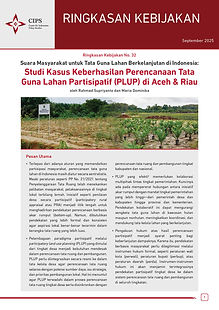The Impact of the Commodity Balance System on Trade Bureaucracy and Food Price in Indonesia

Penulis

Hasran

Krisna Gupta
The Indonesian government faces a persistent conundrum: on one hand, it wants to help industries access affordable raw materials, including through imports. On the other hand, it faces pressure to protect domestic farmers and industries. To address this challenge, the Indonesian government believes that a quota restriction mechanism is the best policy approach. However, the implementation of quota restrictions are riddled with issues due to the system's vulnerability to data inaccuracies, a lengthy process, and corruption and rent seeking. To tackle these problems, the government introduced a new quota management system in 2022 called the Commodity Balance (Neraca Komoditas or NK). NK was designed to fix the issues occurring in the previous system by making the quota-setting process more data-driven, transparent, and integrated across ministries.
This paper tries to evaluate the implementation of the NK system in Indonesia to facilitate the bureaucratic import processes for certain commodities. First, this paper reviews the old quota system as a form of quantitative restriction and highlights its key drawbacks. Second, it qualitatively assesses whether the NK system is able to address these issues. Third, it provides a quantitative analysis to examine whether the NK system has made import processes more efficient and reduced uncertainty in quota allocation.

Rasya Athalla Aaron








































